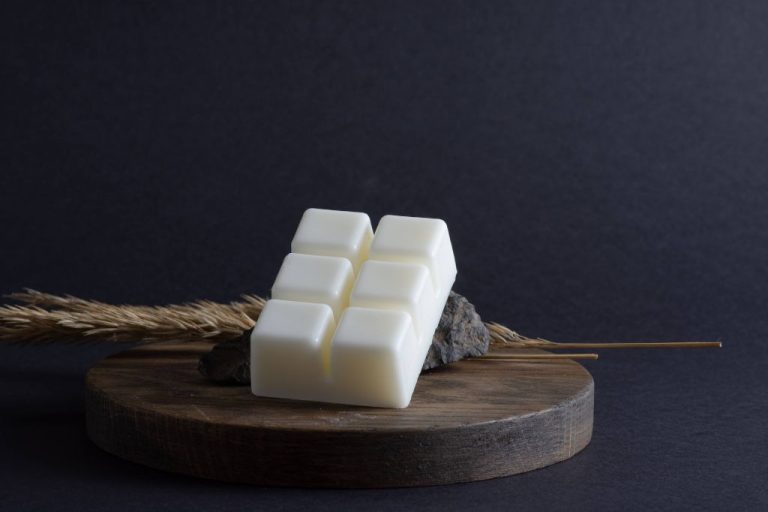Can You Drink Lemon Essential Oil In Water?
What is Lemon Essential Oil?
Lemon essential oil is extracted from lemon peels through cold pressing or steam distillation methods. The oil contains concentrated aromatic compounds from the lemon peel, including powerful antioxidants like limonene and beta-pinene (Hsouna, 2017).
Lemon essential oil is valued for its refreshing citrus flavor and fragrance. It has many uses, including aromatherapy, skin care, household cleaning, and as a flavoring in foods and beverages. The main active component of lemon oil is limonene, comprising over 70% of the oil (Lemon Oil – an overview, n.d.).
Potential Benefits of Lemon Essential Oil
Lemon essential oil contains powerful antioxidant and anti-inflammatory properties that provide several health benefits. The main compound, limonene, gives lemon oil its ability to help fight free radicals that can damage cells (1). This is one reason why lemon oil may support immunity. Some research also indicates limonene may be beneficial for mood, memory, and focus (2).
Additionally, lemon oil is a great source of vitamin C. Just a few drops provide around 3.5 times your daily vitamin C needs (3). Vitamin C is an essential nutrient that acts as an antioxidant, supports immune health, helps produce collagen for skin health, and aids iron absorption.
Overall, research suggests lemon essential oil may help:
- Reduce anxiety and depression symptoms
- Boost cognition
- Support immune function
- Improve skin health and texture
However, more research in humans is still needed to confirm many of lemon oil’s proposed benefits.

(1) Healthline
(2) Dr. Axe
(3) WebMD
Is it Safe to Ingest Lemon Essential Oil?
Lemon essential oil is not intended for internal use and can be unsafe if ingested (source). Essential oils are highly concentrated and can irritate mucous membranes in the mouth, esophagus, and stomach. Consuming lemon essential oil may cause side effects like nausea, vomiting, and dizziness.
While some proponents claim ingesting small dilutions is safe and offers health benefits, there is limited evidence for this. Lemon oil is not intended for oral ingestion and the risks likely outweigh any potential benefits.
It’s best to use lemon essential oil topically or via diffusion. Talk to your doctor before ingesting lemon essential oil, as it can interact with medications and exacerbate certain medical conditions.
Proper Dilution is Crucial
Lemon essential oil is highly concentrated and should always be diluted before use, especially when ingesting internally. According to Doterra, lemon oil should be diluted with at least 4 ounces of liquid or carrier oil [1]. WebMD also recommends diluting lemon oil before ingesting and provides a suggested dilution of 1 drop of lemon oil per 8 ounces of liquid [2].
The proper dilution amount helps make ingestion safer and more comfortable. Using lemon oil undiluted can result in skin irritation or digestive discomfort. Diluting with water, milk, honey, or vegetable oils allows you to control the strength and customize the dosage.
When ingesting lemon essential oil, it’s best to start with a higher dilution ratio and increase concentration slowly to find the optimal dosage. Always follow label instructions and talk to your doctor to determine safe ingestion practices.
Suggested Dosage
When ingesting lemon essential oil, it’s crucial to dilute it properly and stick to the recommended dosage. According to Healthline, the general suggested dosage is to start with just 1 drop of lemon essential oil diluted in 4 ounces of liquid. For most healthy adults, a maximum dosage is 2-3 drops per day.
Always dilute lemon essential oil before ingesting it. Never consume it undiluted or “neat”. Diluting it helps prevent irritation of the digestive tract (1).
When diluted properly, lemon essential oil is considered safe for most healthy adults in small doses. However, there is no standardized dosage, so it’s best to start low and slow (2).
Suggested ways to dilute and ingest lemon essential oil include (1, 3):
- Add 1 drop to 4 ounces of water or non-citrus juice
- Add 1-2 drops to a smoothie or shake
- Mix 2-3 drops into 1 tablespoon of honey or coconut oil
When first starting out, begin with just 1 drop diluted in 4 ounces of liquid. Monitor your body’s response for at least 24 hours before increasing the dosage. Do not exceed 2-3 drops per day without consulting a doctor or certified aromatherapist.
Children, pregnant women, and people with health conditions should avoid ingesting lemon essential oil without medical supervision. Seek professional guidance to determine a safe dosage.
Sources:
(1) https://www.healthline.com/health/lemon-essential-oil#dosage
(2) https://draxe.com/essential-oils/lemon-essential-oil-uses-benefits/
(3) https://www.webmd.com/diet/lemon-oil-health-benefits
How to Safely Ingest
If you choose to ingest lemon essential oil, it’s crucial to properly dilute it first. Here are some safe ways to take lemon essential oil internally:
- Add a few diluted drops to water, tea, smoothies, salad dressings, soups or other foods.
- Place several diluted drops into empty veggie capsules and swallow them with water. This allows you to precisely control the dosage.
- Always remember to drink plenty of water afterward to help flush out the oil and stay hydrated.
It’s not recommended to swallow lemon essential oil undiluted. Only ingest properly diluted lemon oil to reduce the risk of side effects.
Risks and Side Effects
While lemon essential oil has many potential benefits, it’s important to be aware of the possible risks and side effects:
Heartburn, stomach upset, and nausea are common side effects when ingesting lemon essential oil, especially in higher dosages. The acidic nature of lemon oil can irritate the digestive tract for some people (source).
Allergic reactions are possible in individuals who are sensitive to citrus fruits or have a citrus allergy. Symptoms like rash, hives, swelling, and difficulty breathing may occur (source).
Lemon essential oil can interact with certain medications like blood thinners, antidepressants, diabetes medications, and drugs metabolized by the liver. Consult a doctor before ingesting lemon oil if taking any prescription medications (source).
Who Should Avoid It
There are certain groups of people who should exercise caution or avoid ingesting lemon essential oil altogether:
Children and pregnant women: According to Healthline, there is not enough research to establish safe dosing guidelines for children or pregnant women. It is best for these groups to avoid ingesting lemon essential oil due to potential toxicity concerns.
People with reflux, ulcers, IBS: The citric acid in lemons may irritate the esophagus, stomach lining, or intestines in those with conditions like GERD, ulcers, or IBS according to WebMD. Ingesting lemon essential oil could potentially make symptoms like heartburn, abdominal pain, or diarrhea worse.
Those taking medication: Lemon essential oil can interact with certain medications like blood thinners, antidepressants, diabetes drugs, and sedatives according to Medical News Today. It’s important to consult your doctor before ingesting lemon oil if you take any prescriptions or over-the-counter medicines.
The Bottom Line
Ingesting lemon essential oil can potentially provide some benefits, but it also comes with risks and should be approached with extreme caution. While very diluted amounts may be safe for some healthy adults, ingestion is generally not recommended.
According to research, ingesting lemon EO may help improve mood, energy levels, digestion, and more. However, lemon oil is highly concentrated and can irritate the esophagus and stomach lining if not properly diluted. There is also a risk of toxicity if too much is consumed.
Most experts advise against ingesting lemon essential oil without the guidance of a trained aromatherapy practitioner. Proper dilution is crucial, and the maximum oral dose is only 1-2 drops per day for adults when diluted in water or other liquids. More research is still needed on safe dosages.
It’s best to start with an extremely diluted amount under professional supervision to test for any sensitivities. Never ingest lemon EO undiluted. Consult an aromatherapy expert and talk to your doctor before attempting to ingest lemon essential oil.
Talk to Your Doctor First
If you want to start ingesting lemon essential oil, it’s important to discuss it with your doctor first. Here are some key reasons why:
- Get guidance on the proper dosage and dilution. Too much can be unsafe, so your doctor can advise on how much is appropriate for your situation.
- Rule out any potential allergies or medication interactions. Lemon oil may not be suitable if you have certain medical conditions or take certain medications.
- Have your doctor monitor you for any adverse effects. They can keep track of how you respond and adjust the dosage if needed.
Your doctor knows your health history best and can help you determine if ingesting lemon essential oil is a good choice for you. They can also provide tips for staying safe if you do decide to try it. Never start ingesting any essential oil without consulting your physician first.


